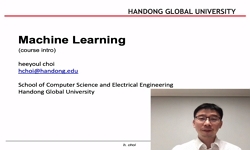The process of heat treatment in cold forging is an essential role in enhancing mechanical properties. However, it relies heavily on the experience and skill of individuals. The aim of this study is to predict hardness using machine learning to optimi...
http://chineseinput.net/에서 pinyin(병음)방식으로 중국어를 변환할 수 있습니다.
변환된 중국어를 복사하여 사용하시면 됩니다.
- 中文 을 입력하시려면 zhongwen을 입력하시고 space를누르시면됩니다.
- 北京 을 입력하시려면 beijing을 입력하시고 space를 누르시면 됩니다.

기계학습을 활용한 냉간단조 부품 제조 경도 예측 연구 = Prediction of Hardness for Cold Forging Manufacturing through Machine Learning
한글로보기https://www.riss.kr/link?id=A108871540
- 저자
- 발행기관
- 학술지명
- 권호사항
-
발행연도
2023
-
작성언어
Korean
- 주제어
-
등재정보
KCI등재
-
자료형태
학술저널
- 발행기관 URL
-
수록면
329-334(6쪽)
- DOI식별코드
- 제공처
-
0
상세조회 -
0
다운로드
부가정보
다국어 초록 (Multilingual Abstract)
The process of heat treatment in cold forging is an essential role in enhancing mechanical properties. However, it relies heavily on the experience and skill of individuals. The aim of this study is to predict hardness using machine learning to optimize production efficiency in cold forging manufacturing. Random Forest (RF), Gradient Boosting Regressor (GBR), Extra Trees (ET), and ADAboosting (ADA) models were utilized. In the result, the RF, GBR, and ET models show the excellent performance. However, it was observed that GBR and ET models leaned significantly towards the influence of temperature, unlike the RF model. We suggest that RF model demonstrates greater reliability in predicting hardness due to its ability to consider various variables that occur during the cold forging process.
동일학술지(권/호) 다른 논문
-
전극봉의 와이어 체결 유무에 따른 자유 벌징 금형의 액중방전성형 실험을 통한 SUS430 소재의 성형성 비교
- 한국소성∙가공학회
- 장윤호
- 2023
- KCI등재
-
경도분포 및 역설계 기법을 활용한 ERW 파이프 열영향부(HAZ) 물성 예측 연구
- 한국소성∙가공학회
- 이상민
- 2023
- KCI등재
-
점진성형공구 코팅처리 및 소재에 따른 성형품 표면품질 분석
- 한국소성∙가공학회
- 윤형원
- 2023
- KCI등재
-
EPS 각도센서용 토션 바의 압입공정의 휨과 회전현상 분석
- 한국소성∙가공학회
- 이형욱
- 2023
- KCI등재




 ScienceON
ScienceON DBpia
DBpia






